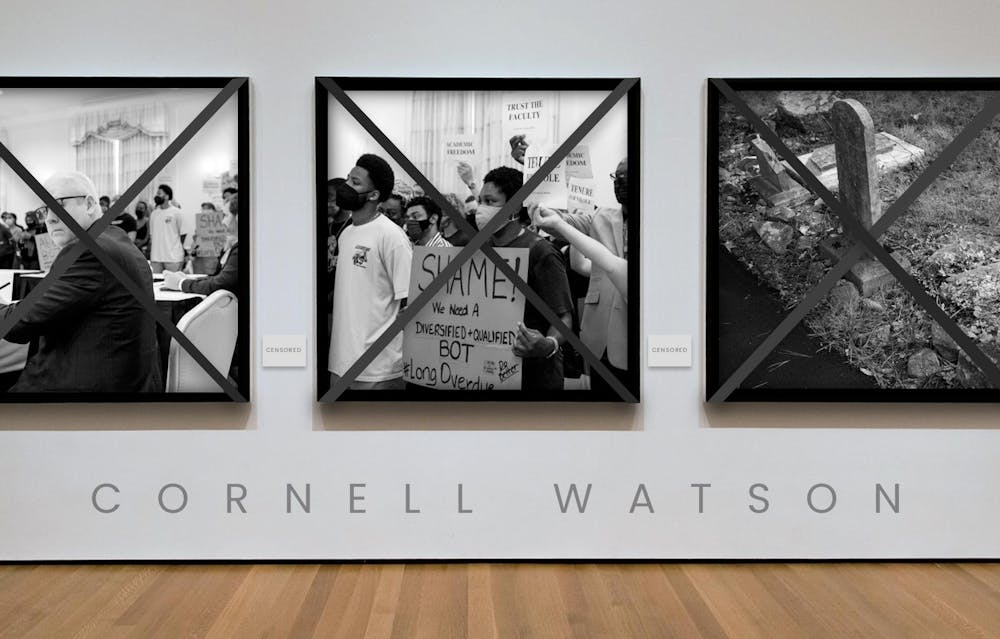The University has once again shown its desire to control the narrative on its racial past and present.
Last week, news broke that UNC had canceled a photography exhibit at the Sonja Haynes Stone Center for Black Culture and History. The exhibit, entitled “Tarred Healing,” was created by Black North Carolina native Cornell Watson, who joined the center last semester as a visiting artist in the Robert and Sallie Brown Gallery and Museum.
In a statement about the cancellation, the Stone Center cited the appearance of some of Watson’s images as a photo essay in The Washington Post, expressing concern for the exhibit being made public before it could be debuted at the University first.
Though the University relates the cancellation to issues of exclusive rights and ownership, Cornell Watson sees the decision as censorship — and I have to agree.
“Tarred Healing” combines conceptual and documentary photography to tell a story about race at the UNC, from the enslaved and free African Americans that helped to build the University, the Black trailblazers that broke the color barrier and enrolled as students and the enclaves of Black families that established community around the University.
Watson asserts that it “is a reflection of our truth through places, people, and systems in Chapel Hill. It is an unapologetic archive of our feelings and emotions. It is a vessel for self-healing. Despite continued obstruction by whiteness, we will heal, even if it is tarred," in his artist statement.
This attention to the significance of place, memory and race for the African American community both at the University and beyond in Chapel Hill was of equal importance to the Stone Center. In a letter to Watson about his offer, the center highlighted applying a critical lens to the University’s process of self-examination. They even suggested certain places on campus for Watson to photograph, demonstrating how much control they wanted from the beginning.
The tension between Watson and the Stone Center began over disagreements on content. More specifically, the staff asked that he remove three documentary-style photos of student protests over the recent controversy surrounding tenure for journalist Nikole Hannah-Jones.
Additionally, they requested the exclusion of a conceptual photo staged at the Unsung Founders Memorial on campus with a shadow holding a noose. The center referred to these disagreements as “normal” and maintained that these images “ran totally counter to what we were trying to achieve and would detract from the theme.”




